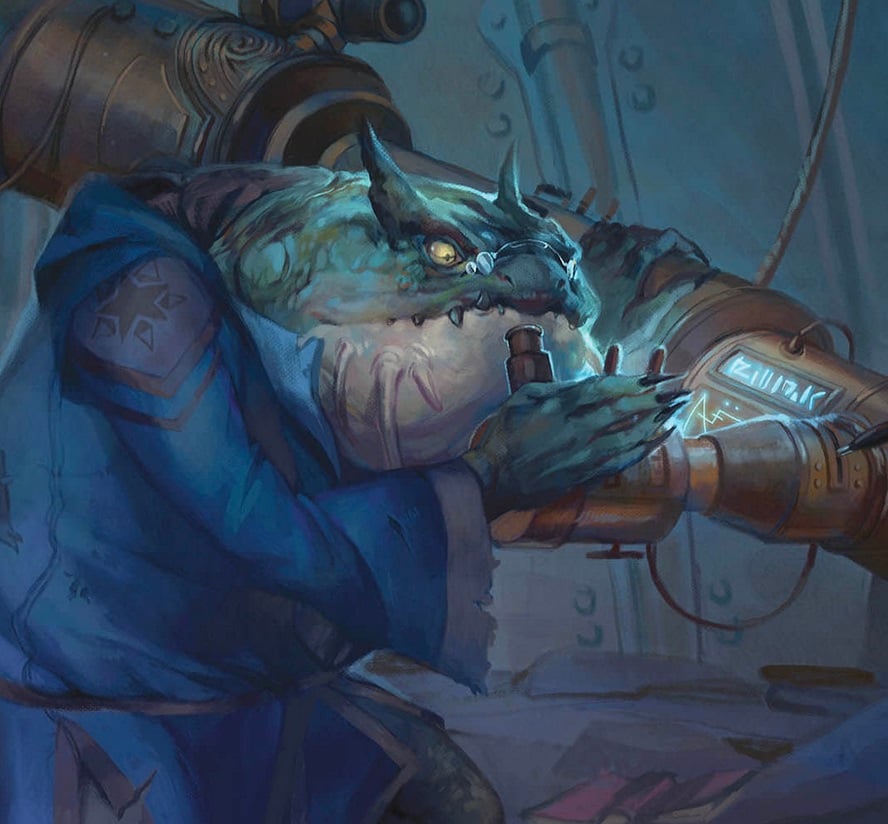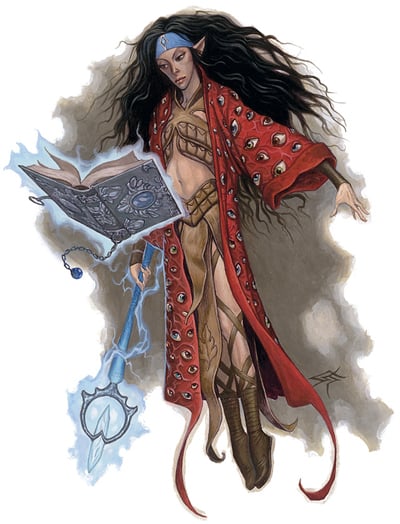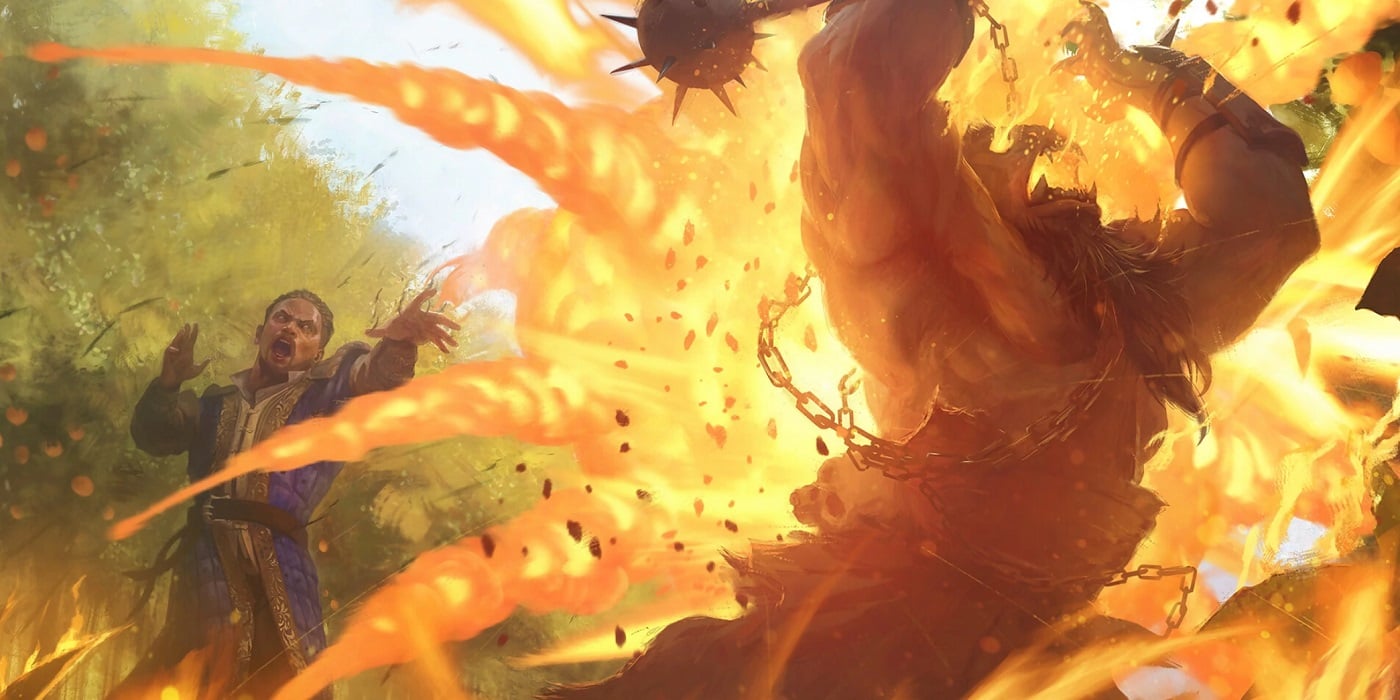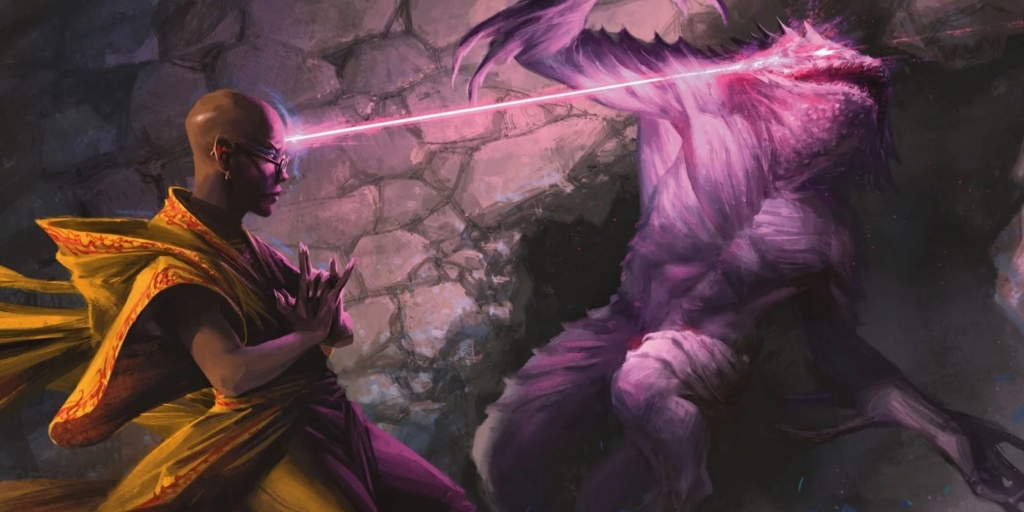D&D’s New Playtest Wizard – WotC Says Putting Spells in Your Spellbook is a Spell Now
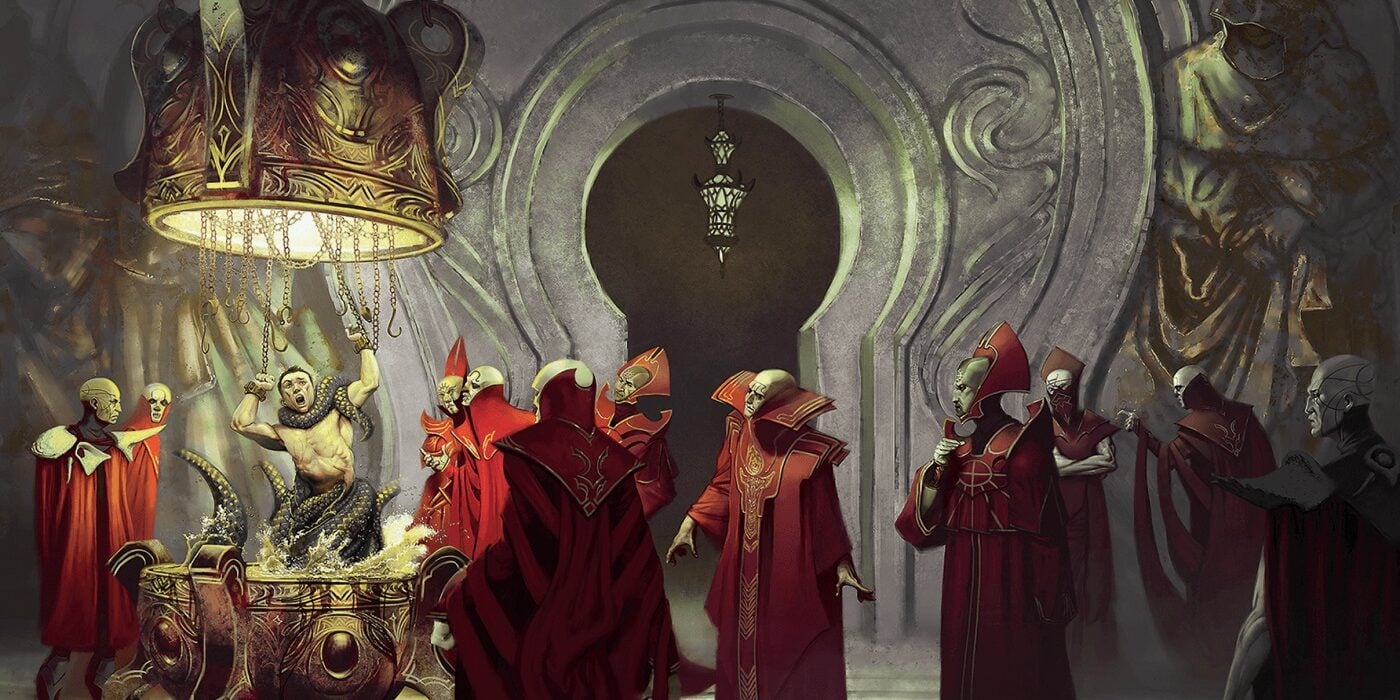

One D&D’s new playtest rules for Wizards are here, and everything is spells now. Even writing spells into your spellbook.
When D&D 4th Edition was released, one of the most prominent, echoing sentiments about the game is “everything is spells now.” And that was largely true. Fighters and Barbarians no longer “made attacks” they used attack powers to strike and do AoE damage or to move up and make attacks that pushed enemies around the battlefield, all while doing 2x or 3x normal damage.
Now the new Playtest Wizard takes that 4th Edition mindset and applies it a little more liberally and literally than you’d think. Because for the One D&D Playtest Wizard, everything is spells now. Even putting spells into your spellbook is a spell.
One D&D Playtest Wizard – There’s a Spell For That
The last of the playtest classes this go round, the Wizard, is all about spellbooks and mastering magic. By examining the theoretical underpinnings of magic, they are able to do wondrous things, mostly casting all sorts of spells.
And here is where Wizards start to change. For one, they no longer prepare spells according to their Level + Intelligence modifier formula, which gave them access to more potential spells than classes like the Sorcerer or Bard. Instead, they follow the same exact progression. No one caster class will have more baseline spells prepared than the others, it seems. Wizards have the edge, a little, in that they can swap out spells on their prepared list with spells in their spellbooks, as long as they can add to them.
This brings us to the other huge change to the way Wizards work. Most of the upkeep parts of being a Wizard are actually spells now. Starting with the Scribe Spell spell. Boy, that’s clunky. When you cast the Scribe Spell spell, you basically do the same thing that was a mundane action in vanilla 5E. It takes the same amount of time and money: two hours and 50 GP per level of the spell. Only now you’re casting a spell to write a spell into your book.
You can cast it ritually, so you won’t have to expend a spell slot, or even make Scribe Spell one of your prepared spells.
However, here we immediately run into what is certainly an oversight. Because Wizards have to choose to prepare Scribe Spell. And if you don’t, and you somehow lose your spellbook, you’ll be unable to swap to Scribe Spell, which means you won’t be able to create a new Wizard’s spellbook.
Why it’s like this is literally anyone’s guess. It seems like an unnecessary step. It doesn’t really add a ton of flavor to the Wizard. But that’s how a lot of the Wizard’s class features are. Which is a weird choice. But their new class features are pretty strong, so it’s a small, strange price to pay.
For instance, at 5th level, Wizards get Memorize Spell. Memorize Spell is a 3rd-level Divination spell that lets you hot-swap prepared spells. It can be cast ritually, so it only costs you time. But it’s a spell nonetheless. Where Wizards really get cooking is at 7th level with Modify Spell.
Modify Spell is a 4th-level spell that allows a Wizard to magically alter one Arcane spell that’s been prepared. You can remove one of the spell’s components: Somatic, Verbal, or Material (as long as the spell doesn’t “consume” the component); make it so that damage doesn’t break your Concentration on the spell you modify, extend the range of a spell, make it a ritual spell, let you make a spell effect only allies or enemies, or swap out damage types.
All of which is great. And a few levels later, at 9th level, you can cast Create Spell, which you cast as a Reaction to casting Modify Spell (again, this is a really clunky mechanic that is a spell for no discernible reason). This spell does actually very little. You cast Create Spell so that you can then meditate for an hour, and if you do, you can then cast Scribe Spell in order to add the altered spell into your spellbook. So that’s casting three spells (one of which requires a spell slot) spending 1,050 GP per level of the spell and then adding a modified spell to your spellbook which you can’t modify again because it no longer counts as an Arcane spell, just a Wizard spell instead.
And Then There’s the Evoker
The included Subclass is the Evoker. It functions a lot like the 5E Evoker you knew before. When you take it, you get two bonus Evocation spells (without having to cast the Scribe Spell spell), and then you get the ability to effectively exclude some creatures from the area of effect of your spell. You pick 1 + spell’s level creatures, and they auto succeed on saving throws, taking no damage if they would normally take half damage on a successful save, which feels like another extremely clunky way of saying “they aren’t affected by the spell”.
At 6th level, as an Evoker, your cantrips deal half damage on a miss/successful save. And at 10th and 14th levels, you gain Empowered Evocation and Overchannel, which work exactly the same as in vanilla 5E.
If you can think of a reason why figuratively everything about the Wizard is a spell now, please let us know in the comments.

